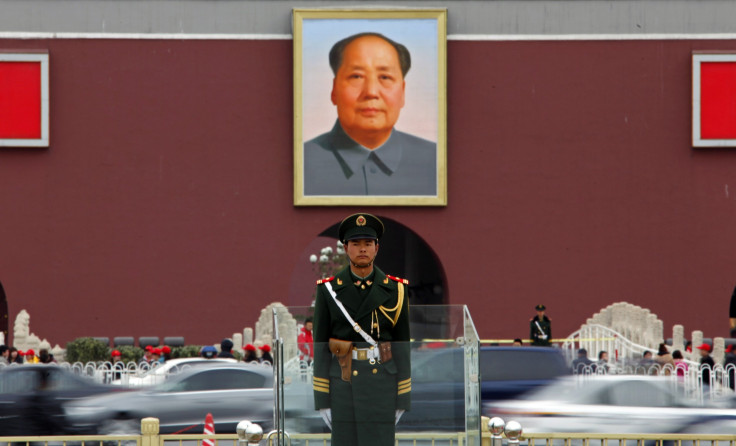US Presidential Election, Greek Parliament Vote, China’s Leadership Transition And October Data : Economic Events For Nov. 6-9

In a light week of data, the U.S. presidential election will likely dominate the headlines. Intrade and Iowa electronic markets put a high probability on a split government, meaning another four years of contentious debate in Washington.
Coming in the heels of the U.S. election, the Chinese Communist Party congress kicks off on Thursday. The new leadership will not take the helm until March, but the policy direction is becoming clearer.
Between the leadership transitions in the world's two most powerful nations, the Greek parliamentary vote on the new austerity and reform package will also hit the headlines. The government coalition is going into the key Wednesday vote with a thin majority.
“Even if the government wins this week’s parliamentary votes on the budget and structural reforms, a key condition for it to receive more bailout money, we still think that it is only a matter of time before the bailout collapses,” writes Ben May, European economist at Capital Economics.
Central bank meetings around the world and China’s October data are also worth watching.
Below are entries on the economic calendar between Nov. 6 and Nov. 9. All listed times are EST.
Tuesday
U.S. presidential election.
Non-U.S.:
Australia – RBA cash rate for November.
E17 – October services PMI index, final reading.
E17 – October composite PMI index, final reading.
E17 – September PPI.
U.K. – September industrial output.
U.K. – September manufacturing output.
Wednesday
7 a.m. -- Mortgage Bankers Association's mortgage index for the week ending Nov. 3.
3 p.m. – Economists look for consumer credit outstanding to rise by $10 billion in September, which would be the seventh double-digit rise in credit since the start of the year.
Non-U.S.:
E17 -- European Central Bank president Mario Draghi speaks at Wirtschaftstag 2012 of co-operative banks in Frankfurt.
Germany -- Chancellor Angela Merkel addresses European Parliament in Brussels.
Germany -- Chancellor Angela Merkel meets British Prime Minister David Cameron in London for European Union budget talks.
Germany – September industrial production.
Greece -- Parliament votes on structural reforms (tentative).
Poland – Base rate announcement for November.
Japan – September core machinery orders.
Thursday
8:30 a.m. – Economists expect September’s trade deficit to widen further to $45.3 billion from $44.2 billion. This would be consistent with the assumption made by the Bureau of Economic Analysis at the time of the first estimate of GDP that import growth exceeded that in exports. The gain in imports reflects strong consumer spending: September's vehicle sales reached 14.9 million SAAR and retail sales rose 1.1 percent. On the export side, economists expect only a modest gain after the past two months of sharp declines.
8:30 a.m. – Initial jobless claims for the week ending Nov. 3 are likely to rise to 370,000, from 363,000 in the prior week. Jobless claims tend to increase following a natural disaster and economists expect Hurricane Sandy to be no different. However, it is difficult to determine the exact timing of this impact since loss of access to the Internet or phone could make it difficult to file a claim.
8 p.m. -- Federal Reserve Bank of St. Louis President James Bullard (FOMC non-voter) gives presentation on the U.S. economy and monetary policy before the Ninth Annual Corporate Finance Conference hosted by Washington University in Missouri.
Non-U.S.:
E17 – Extraordinary Eurogroup meeting.
E17 – ECB interest rate announcement for November.
E17 – ECB press conference.
Poland – Inflation report publication.
Indonesia – Bank of Indonesia reference rate for November.
Serbia – Repo rate for November.
Malaysia – Overnight rate for November.
U.K. – BoE Bank rate decision for November.
U.K. – BoE asset purchase decision for November.
Peru – Reference rate for November.
Germany – September trade balance.
France – September trade balance.
Friday
8:30 a.m. – Import prices are likely to decline by 0.1 percent in October, after two consecutive 1.1 percent monthly gains. Food and energy prices, which were strong contributors to September's growth, look likely to decline in October. Brent crude prices have edged down a few dollars on average over the past two months. Non-petroleum import prices are likely to also fall 0.1 percent monthly.
9:55 a.m. – The University of Michigan consumer sentiment index surged to pre-recession levels in October, and economists expect this positive trend to continue in the preliminary November report with a more modest gain to 82.8 from 82.6. While equity markets have fallen a bit, gasoline prices have too, and payroll data suggest the labor market is picking up modestly.
10:00 a.m. – Wholesale inventories likely rose 0.4 percent in September, after advancing 0.5 percent in August. Sales probably gained 0.8 percent.
Non-U.S.:
E17 – ECB Executive Board member Benoit Coeure speaks on "The role of central banks after the crisis" in France.
Russia – Overnight deposit rate and repo rate for November.
Korea – South Korea 7-day repo rate for November.
China – October CPI.
China – October PPI.
China – October industrial production.
China – October fixed asset investments.
China – October retail sales.
Germany – October HICP, final reading.
Germany – October CPI, final reading.
Italy – September industrial production.
Sources: Central banks, European Commission, Reuters, Market News, Capital Economics, Barclays, Bank of America Merrill Lynch.
© Copyright IBTimes 2024. All rights reserved.





















